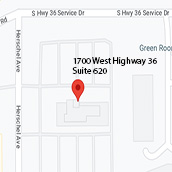Chapter 7, 11, 12 and 13 Bankruptcy Defined
Personal Injury Lawyer
Part of life means managing your money is such a way that you are able to have a roof over your head and food on the table. Sometimes, we may get so caught up in debt while living paycheck to paycheck, that we are not sure we can ever pay everything off. Those who are in severe financial distress may want to consider meeting with an attorney about filing for bankruptcy. It can be a tough decision to make, but may be the best solution for your current financial situation. When clients come to talk with us about filing for bankruptcy, one of the most common inquiries is what the differences are between each chapter.
Here we have described each chapter briefly, to give you an overall idea of which may be most suitable for you. Even after reading the information below, we highly recommend meeting with an attorney to assist with your application process.
Chapter 7 Bankruptcy (Liquidation Bankruptcy)
Those who apply for chapter 7 bankruptcy may have a significant portion of their debts discharged. However, this may mean the debtor has to give up property that is currently on loan to satisfy the creditor. Whether or not a debtor chooses chapter 7 is usually based on how badly they want to keep their belongings, over having those debts erased through relinquishment.
Chapter 11 Bankruptcy (Large Business)
Chapter 11 bankruptcy is typically used by big companies, who want to restructure their finances in such a way that they are able to continue operating as normal. If you are a business owner and are struggling financially to keep up, we suggest meeting with an attorney right away. The process of filing for bankruptcy as a business owner can be much more complicated than if you were declaring as an individual.
Chapter 12 Bankruptcy (Farmers and Fishermen)
Farmers and fishermen do not get paid regularly, as their job entails mostly seasonal type work. Under chapter 12, a farmer or commercial fisherman can reorganize their finances in order to sustain themselves and maintain their operation.
Chapter 13 Bankruptcy (Repayment Plan)
A debtor who declares chapter 13 bankruptcy must pay their outstanding debts in full or a percentage, over the course of a 3-5 year repayment plan. In exchange for paying into their debts, debtors are able to continue owning their items on loan. If the debtor can fulfill these payment obligations over those few years, he or she may have the rest of the remaining debts erased. This chapter may work great for those who want to keep their property and are able to financially pay into the plan from their earnings.
We understand that you may be feeling quite frustrated or even embarrassed at wondering if filing for bankruptcy is right for you. Please call a bankruptcy lawyer Melbourne, FL relies on today to schedule your first consultation so that they can help you decide if this is a resource that can put you on a path to future financial stability.
Thank you Law Offices of Acadier, Biggie & Wood for their insight into bankruptcy law.






